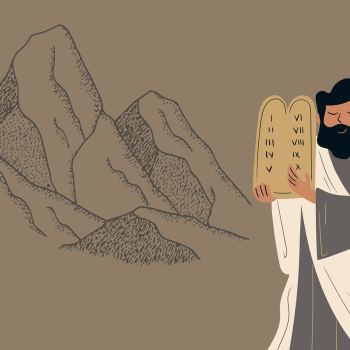 By David Loy
By David Loy
Can Buddhism help us understand money? What, if anything, can Buddhism add to traditional Western conceptions (and warnings) about the use and abuse of money?
In the Sermon on the Mount, Jesus warns us not to "lay up for ourselves treasures on earth" (Matthew 6:19-21), for how do we profit if we gain the world but lose our souls in the process? Buddhists aren't worried about losing their souls, but we get the point. St. Paul, the apostle who really created Christianity, distinguished between money and love of money. He said that love of money is the root of all evil, emphasizing that our greed for money and attachment to it is what makes money such a problem for many of us.
Long before those biblical verses were written, however, the Greek myth of Midas and his golden touch gave us the classic metaphor for what happens when money becomes an end in itself. Midas was a Lydian king who was offered any reward he wanted for helping the god Dionysus. Although already fabulously wealthy, he asked that whatever he touched might turn to gold. Midas enjoyed changing everything into gold, until it was dinnertime. He took a bite -- ching! It turned to gold. He took a sip of wine -- ching! He hugged his daughter -- ching! She turned into a golden statue. In despair, Midas asked Dionysus to deliver him from this curse, and fortunately for him the god kindly obliged.
It's such a simple story but so profound. Money is an extraordinary social invention, and modern civilization could not function without it, but it's also a temptation that always has the potential of turning into a curse. In and of itself, money is literally valueless, a nothing: like Midas' gold, coins and bills can't be eaten, or shelter us when it rains, or warm us when we're cold, or heal us when we're ill.
Money becomes valuable as the socially-constructed means that enables us to convert some thing (for example, a couple hours' work) into something else (a bag of groceries). The tragic irony is when we sacrifice everything else (our time becomes "labor," the earth becomes "resources," etc.) for that "pure means."
To a certain degree that's often necessary, of course. We live in a monetarized world, and that's the way it works. But there's a danger of reversing means and ends, so that the means becomes the ends. As Schopenhauer put it, money is abstract happiness, so someone who is no longer capable of concrete happiness sets his whole heart on money. Then we become like Midas. Instead of appreciating our concrete, sensuous life in the world, we end up focused on an abstraction that has no value in itself.
The myth of Midas expresses all this much more directly and powerfully. Can Buddhism help us understand why this trap is so alluring?
Today money serves at least three functions for us. For better or worse, it is our indispensable medium of exchange. In effect, this makes money more valuable than anything else. It's not only that it can transform into almost anything. Because it is how we define value, money symbolizes pure value.
That helps us understand the second function of money: it is our socially-agreed storehouse of value. Centuries ago, before money became widely used, one's wealth was measured in cows, full granaries, and children, but they are vulnerable to rats, fire, and disease. The advantage of gold and silver -- and now bank accounts -- is that they are incorruptible. Gold doesn't even tarnish, so it is therefore, in principle, immortal. This is quite attractive in a world haunted by impermanence and death.
Capitalism added an addictive little twist, which we take for granted today but which was unattractive, not to say immoral, to many people in the past. The word "capital" originally comes from the Latin word for head of cattle, but today it means money that's used for investment. Invest your surplus and watch it grow! The problem with this attitude arises when you re-invest what you get to get more, the assumption being that you can never have too much, which psychologically tends to become: you can never have enough. This has become a widespread and socially-accepted version of the more general trap mentioned earlier: the means becomes the ends. Again, can Buddhism help us understand why we fall into this obsession, which so often damages the quality of one's life while also destroying the biosphere ("resources")?
The anatta "no self" teaching gives Buddhism a special perspective on dukkha "suffering" that also implies a special take on our problem with money. The problem isn't just that I will someday get sick, grow old, and die. My "emptiness" means that I feel something is wrong with me right now. I experience this hole at the core of my being as a sense of lack, and in response I become preoccupied with projects that I think can make me feel more "real." Christianity has an explanation for this lack and offers a religious solution, but many of us don't believe in sin anymore. So what is wrong with us? The most popular explanation in monetarized, "economized" societies is that we don't have enough money. That's our contemporary "original sin."




